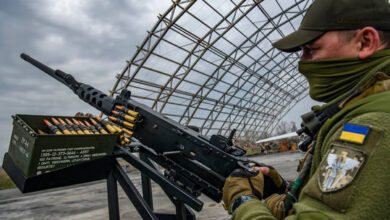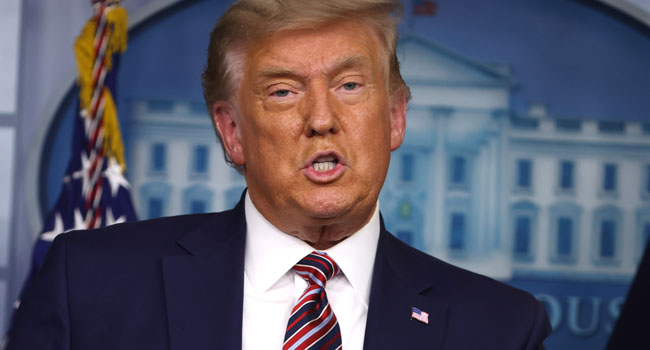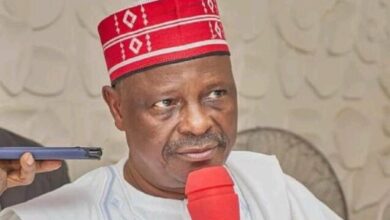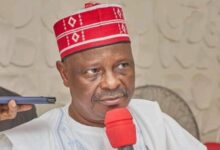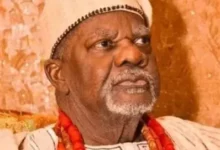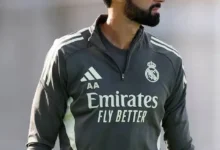2019: Buhari, Atiku in the eyes of Nigerians
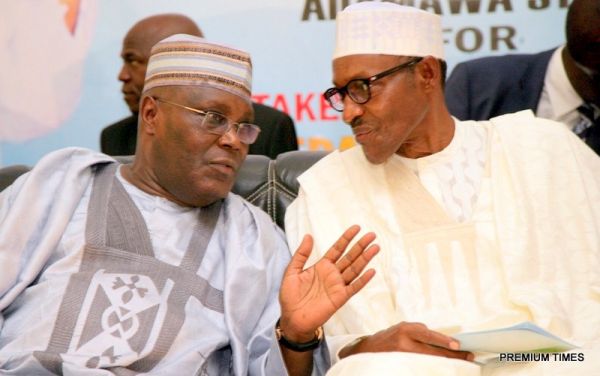
By Muhammad Ajah
Since the party primaries that produced the incumbent President Muhammadu Buhari as the Presidential flag-bearer of the All Progressives Congress (APC) at the Eagle Square in Abuja on October 6, 2018 and former vice president of Nigeria, Alhaji Atiku Abubakar as the flag-bearer of the Peoples Democratic Party (PDP) at the Adokiye Amiesimaka Stadium in Port Harcourt a day after, I have had a heave of relief and concluded that it is going to be between Buhari and Atiku on February 16, 2019.
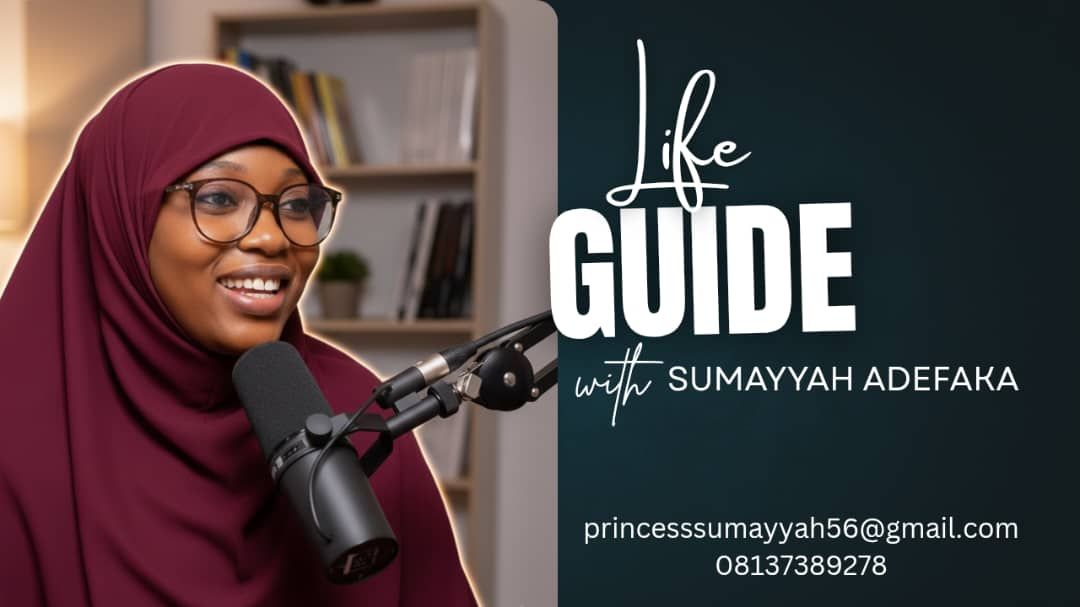
Two issues of great concern if the choices of the APC and PDP were otherwise would have been how to manage religious crisis on one hand and the regional wrangling on the other hand. Let’s say, for instance, the PDP had chosen a Christian flag-bearer from even the northern part of Nigeria where Buhari belongs. That was the expectation of quite a good number of political analysts in consideration of the criticisms that emanated from the opposition against Buhari. There is no hiding the truth that, barely three months to the President poll, the political situation in Nigeria would have tensed up if APC and PDP had featured flag-bearers of the rival religions in Nigeria – Islam and Christianity.
Another concern would have been certain if both of the candidates are Muslims but from the same Northwest geopolitical zone. There would have been serious tension there by now. But there is less tension because, to me, God has designed something glamorous for Nigeria. The steady growth of Nigeria precipitated by the sincerity of purpose of the current leadership must not be thwarted half way. In the same line, prayers by patriots for very hitch-free electioneering processes and a smooth transition come May 29, 2019 are being evidently answered by God. Many religious and inter-religious groups have been holding national prayers across Nigeria for this purpose.
Being the situation on ground, Buhari and Atiku have been hoping to capitalize on the presumed weaknesses of each other to campaign and convince Nigerians of their credibility and chances to lead Nigeria. But I am very surprised what manner of campaigns both parties and even others are putting up. It is like the social media have become the campaign ground for Nigerian politicians. This is quite unlike before and credit must be given to Buhari on this new trend. The electorates must not be induced to vote against their consciences. Vote buying must be stopped. Nigerians must not collect peanuts from politicians for a whole four-year mandate. I have never witnessed in Nigeria that, three months to general elections, free monies are not being wasted on trivialities for inducements of the people or impositions of candidates.
Buhari has rolled out his targets for Nigeria for the next four years entitled “Next Level”. The Buhari manifesto has been heavily criticized by the opposition. Atiku has rolled out his own four-point agenda manifesto/policy document which promotes restructuring, privatization, job creation, infrastructure development and poverty eradication. There was an “anointed and calculated” silence on fight against corruption. Added to this, a lot of Nigerians are, however, worried about the two controversial issues of restructuring and privatization. Atiku has fixed particular interest in the selling of national assets, like his former boss Olusegun Obasanjo did. Nigeria still depends on oil. And he has promised to the NNPC. To who? Both Obasanjo and Atiku sold nearly everything that Nigeria possessed allegedly to themselves by proxy. So, is Atiku on the mission to sell off the remaining assets? Is he on the mission to create nations out of Nigeria in the name of restructuring, a system that was vehemently opposed in the past by the main people agitating for it now?
I am so worried that Nigerians and in fact the civil and legal society organizations have not asked of the actual owners of all those national assets sold out between 1999 and 2007. Oil wells in the Niger Delta were dashed out to individuals. Is it not time for the Niger Delta people to expose the owners and demand reversal of those policies and licenses? I think Nigerians are wiser than before. Nigerians who have been alive from 1999 to now and have shown interest in Nigeria’s governance can judge by themselves. Achievements speak for themselves, not mere political policies and propaganda.
With all that I have tried to put up, Buhari and Atiku are similar and dissimilar in some aspects. Both are Muslims by religion, Fulani by tribe, northern by region, advanced by age, loved by different sections of Nigeria, have feelings for Nigeria and hopeful of victory in the February 2019 presidential contest. Yet, it is not far from the truth that Buhari has his weaknesses as a human being just as Atiku has. Further, Buhari is unlikely to involve himself in unreligious conventionalities like Atiku. The mention of Buhari’s name in the whole northern part and a large part of Southwest of Nigeria is an opiate more than it is to Atiku.
I have met many friends on the social media fighting over who is best to lead Nigeria. I do not think it is because I belong to Buhari, most of the fights mostly end in favour of Buhari. In most online pools generated by even Atiku’s supporters, Buhari’s people overshadow it and vote against Atiku. There is recent audiovisual circulating in the social media of Nigerian Children Ambassadors for Buhari-Osinbajo 2019 sponsored by a group called Buhari-Osinbajo 2nd-Term Support (BOSS) where Nigerian children are canvassing support for Buhari. They are of the Hausa, Yoruba and Igbo children expressing confident of Buhari’s victory and wishing Nigeria well beyond 2019.
Nigerians can see from the acceptance speeches of both flag-bearers, even before their manifestoes. I will take that in another write-up. Buhari on October 6, 2018, after being endorsed by over 6,000 party delegates, described the result of APC’s presidential primaries as different because he was the only candidate, even while noting the eligibility of other candidates who preferred the APC’s unity and over-all national stability to self pursuit. He recalled what his change agenda has done as against the PDP’s “bad” government between 1999 and 2015 in the areas of infrastructure, security, foreign reserves, financial recklessness, bankruptcy and international image blundering.
Atiku, who polled 1,532 votes to defeat 11 other contestants in the primary, described the convention as a landmark event. He particularly paid tribute to Obasanjo, saying that he would not have succeeded as a presidential candidate if Obasanjo had not made him his vice president in 1999. This apparently refers to the joyous moments, not the quarrelsome moments Obasanjo and Atiku shared.
Nigerians are posed to choose between Buhari and Atiku in 2019. Buhari is apparently depending on his popularity amongst the Nigerian masses, Atiku is out-rightly depending on some old political demagogues. The political demagogues are falling in their respective locations across Nigeria. They have had their turns in the past, turns that had not yielded tangible results to Nigeria’s socio-economic and political transformation. My question, therefore, is: Will 2019 be another victory for the Nigerian masses or a return to the past of political brigandage?
*Muhammad Ajah is an advocate of humanity, peace and good governance in Abuja. E-mail mobahawwah@yahoo.co.uk.


